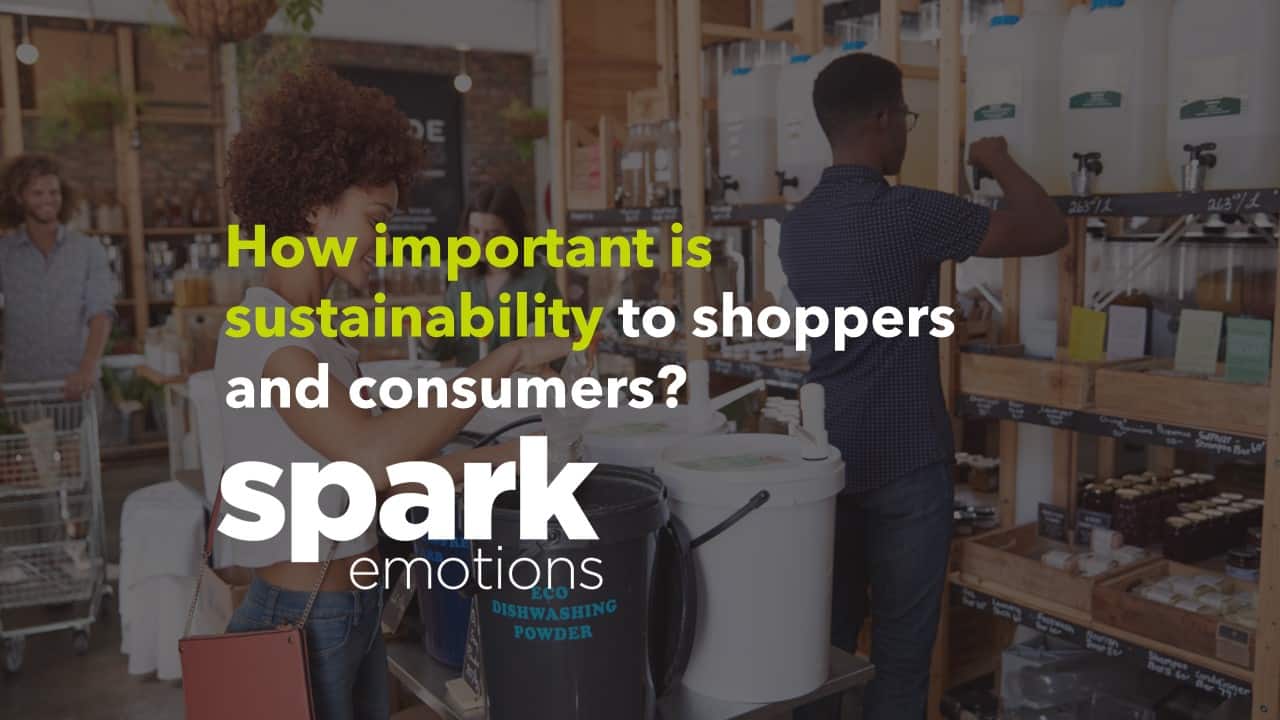For the past few years, sustainability has been a hot topic for businesses and consumers alike. Climate-related disasters and damning scientific reports show the extent of the damage that overproduction and over-consumption has on the planet. And it’s no surprise that many consumers have started to reconsider their habits.
In fact, a 2020 McKinsey survey found that over 60% of consumers actively prioritise sustainable products and brands. But in light of current economic insecurity, do shoppers still care more about sustainability than price?

The relevance of sustainability to shoppers and consumers
It’s undeniable that, at its core, sustainability matters. It promotes a healthier and more ethical way of living and helps ensure a better future for people and the planet.
Sustainability also matters to consumers as individuals. As people become increasingly aware of the impact their choices have on the environment, they seek out products that are eco-friendly and have a lower carbon footprint.
The issue of social responsibility is another driving factor for sustainable consumption. It encourages shoppers to support businesses that treat their employees fairly, pay a living wage, and provide safe working conditions.
Many sustainable shoppers also see it as a positive for their own well-being. They understand the connection between health and natural or organic products, and the impact of chemicals and synthetic ingredients on their personal health. And they choose healthier alternatives.
Sustainable shopping is also a good way to support small and local businesses. They tend to follow more sustainable and ethical practices. And supporting them also helps create jobs and generate economic growth in local communities. Shoppers interested in the economic benefits of sustainability are also more likely to be loyal to brands that align with their ethical and sustainable values. A report by Capgemini found that 77% of consumers were more likely to buy from and remain loyal to, brands with a social responsibility pledge.

Sustainability vs price: What matters more?
One of the major barriers to sustainable shopping decisions is cost. Many people who would like to shop more sustainably are unable to afford these options due to the higher price point. This means that, while consumers are often willing to pay a premium for sustainable products, this willingness is usually based on their disposable income.
Higher-income consumers may be more likely to prioritise sustainability over price simply because they can. While lower-income consumers may be forced to prioritise price over sustainability. Sustainable products are often more expensive to produce – as a result of being more ethically sourced and manufactured. While non-sustainable products, which are often worse quality, tend to be cheaper and therefore more affordable for those with less disposable income.
Gender can also play a role in consumer priorities. Research has shown that women are more likely to prioritise sustainability in their purchasing decisions than men. Similarly, younger generations like Millennials and Gen Z tend to be more environmentally conscious, and are more likely to prioritise sustainable purchases than older generations.
However, it’s important to note that consumer priorities are complex and can vary based on a variety of individual factors regardless of demographic. For example, consumers often use their values and beliefs to evaluate and select products or services that align with their own. So if a consumer values environmental sustainability, they may choose eco-friendly products, even if they cost more. Similarly, a consumer who values supporting local businesses may choose to buy only from small, locally-owned companies instead of larger corporations.
These choices are influenced by things like personal experiences, upbringing, cultural norms, and exposure to marketing messages. As such, consumer values and beliefs are deeply ingrained and can influence all decision-making processes. Not just those connected to sustainability.
Additionally, many consumers may prioritise both sustainability and price, and may seek out products that balance both factors.

The impact of sustainability on different shopping industries
The topic of sustainability is relevant to almost all consumer industries. But the conversation is most prevalent around fashion, food, and consumer goods. In each industry, sustainable practices and initiatives can help to reduce waste, minimise environmental impact, and promote responsible production and consumption.
While specific approaches to sustainability may vary between industries, the ultimate goal is to create a better future for both businesses and consumers.
In the fashion industry, sustainable practices include using eco-friendly materials, reducing water and energy usage, and implementing ethical labour practices. Many fashion brands have also introduced circular models like recycling programs and clothing rentals to reduce waste and extend the lifespan of products.
Some of the most successful sustainable initiatives in the fashion industry include H&M’s Conscious Collection, which uses sustainable materials and production processes, and Patagonia’s Worn Wear program, which encourages customers to repair and reuse their clothing.
In the food industry, sustainable priorities include reducing waste, sourcing ingredients from local and organic producers, and using eco-friendly packaging. Many food brands have also introduced plant-based and alternative protein products to reduce the environmental impact of animal agriculture. A famous sustainable initiative in the food industry is Ben & Jerry’s Climate Justice Campaign, which advocates for climate action and sustainability in the food system.
In the consumer goods industry, sustainable practices focus on reducing packaging waste, using recycled materials, and energy-efficient manufacturing processes. Many consumer goods brands have also introduced refillable and reusable product options to reduce waste.
Popular sustainability initiatives in the consumer goods industry include Unilever’s Sustainable Living Plan, which outlines the company’s commitment to sustainability and social responsibility. Method’s “People Against Dirty” campaign also promotes the use of environmentally-friendly cleaning products at home.

The future of sustainable shopping
Consumer behaviour changes and evolves in response to ever-increasing sustainability concerns. As a result, sustainable consumption is becoming more mainstream, with shoppers increasingly prioritising eco-friendly and socially responsible products.
One of the key influences of this shift in consumer behaviour is an increased awareness of sustainability issues. With the rise of social and digital media, information about sustainability and environmental impact is more accessible than ever. Now, there is a greater understanding of the negative effects of unsustainable consumption habits. Which has led to a desire for more sustainable alternatives.
Another driver is the increasing availability and affordability of sustainable products. As more companies adopt sustainable practices and introduce sustainable products, consumers have better access to eco-friendly alternatives. And they’re often competitively priced against non-sustainable options. This has reduced the perception that sustainable products are expensive or difficult to find.
However, there are still challenges to making sustainable consumption the norm. Some consumers may still prioritise price or convenience over sustainability. And there may be a lack of awareness or access to sustainable options in some areas or demographics. Additionally, there is sometimes an element of scepticism towards green marketing claims. This makes it difficult for consumers to differentiate between truly sustainable products and those that are falsely marketed as such.
The trend towards sustainable consumption is promising. But it will need continued education and awareness-raising efforts, and innovative approaches from corporations, to make sustainable options more accessible and appealing to consumers in the long run.
We’ve got more articles on sustainability if you’d like to learn more.
Eco-labelling – A new way to display the environmental impact of food
We asked shoppers to describe sustainability, here’s what we found out
To understand how sustainability perceptions affect your business, get in touch





